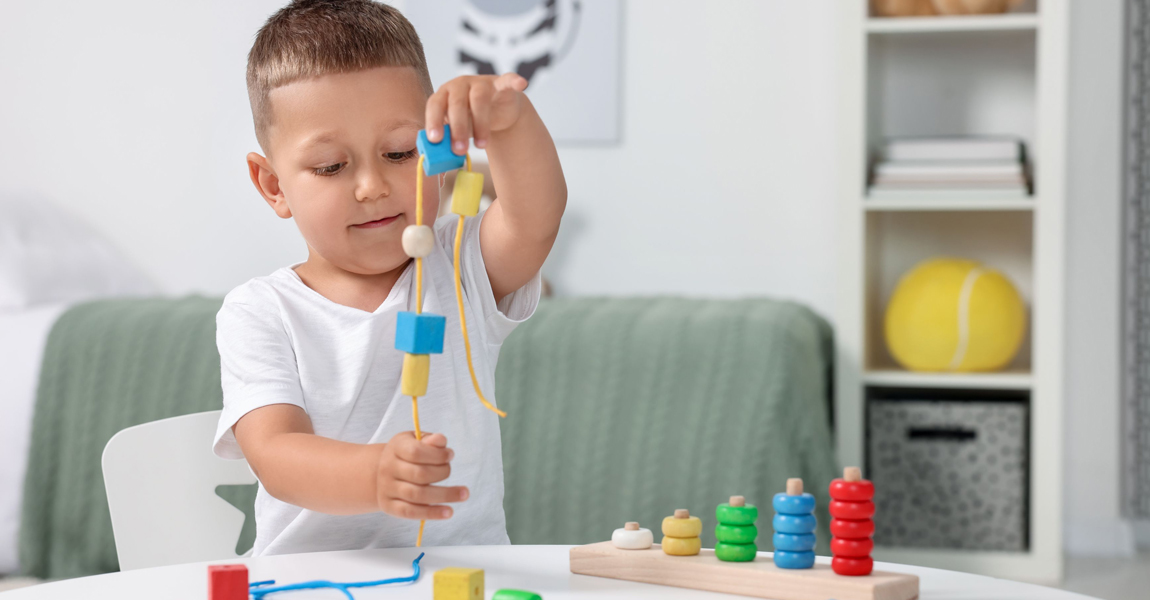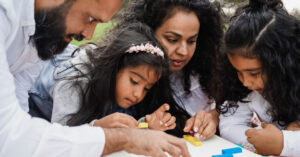Practical Life Skills: Preparing Children for Real-World Challenges through Montessori Education

Education isn’t just about academics—it’s about preparing children for life. While traditional schooling often focuses on memorization and tests, Montessori education prioritizes practical life skills, equipping children with the independence, confidence, and problem-solving abilities they need to navigate the real world.
With the growing demand for holistic education, many parents are searching for Montessori schools near by or considering international schools in Hyderabad that integrate practical life learning. Let’s explore how Montessori education fosters real-world readiness.
In Montessori education, practical life skills refer to everyday activities that help children gain independence, coordination, and a sense of responsibility. These activities are integrated into the curriculum from an early age, allowing children to learn by doing rather than by passive instruction.
- Self-Care – Dressing, hygiene, and food preparation
- Care for the Environment – Cleaning, gardening, and organizing
- Social and Emotional Skills – Practicing kindness, communication, and problem-solving
By engaging in these tasks, children develop fine motor skills, patience, and self-discipline, all of which contribute to their overall development.
1. Self-Care Activities
Montessori classrooms teach children to care for themselves through activities such as:
- Buttoning shirts and tying shoelaces
- Brushing teeth and washing hands
- Preparing simple snacks and pouring drinks
These activities help children gain confidence and a sense of independence from an early age.
2. Care for the Environment
Children learn to respect and maintain their surroundings by:
- Sweeping and mopping floors
- Watering plants and taking care of pets
- Organizing classroom materials and personal belongings
By engaging in these tasks, children develop a sense of responsibility and an appreciation for cleanliness and order.
3. Social and Emotional Development
Montessori education emphasizes grace and courtesy lessons, where children practice:
- Greeting others politely
- Expressing emotions constructively
- Resolving conflicts peacefully
These skills help children build strong interpersonal relationships and emotional intelligence.
Montessori activities are designed to allow children to complete tasks on their own, fostering independence. As they master these skills, they gain confidence in their abilities, making them more self-reliant.
- Figuring out how to fasten buttons on a jacket
- Measuring ingredients while preparing snacks
- Resolving minor disagreements with peers
These experiences strengthen their critical thinking and decision-making skills.
3. Responsibility and Time Management
Montessori classrooms operate on self-directed learning, where children choose activities and manage their own schedules. This teaches them to be responsible for their actions and time management from an early age.
The Role of Montessori Schools in Developing Practical Life Skills
Why Montessori Schools Stand Out
Unlike traditional schools, Montessori schools near by create a structured yet flexible environment where children engage in meaningful tasks that develop both academic and life skills.
Teachers serve as guides rather than instructors, allowing children to explore at their own pace while offering support when needed. The carefully prepared classroom environment includes real-life materials like child-sized kitchen tools and cleaning supplies, encouraging children to participate in everyday activities.
Examples of Practical Life Activities in Montessori Classrooms
- Setting the Table – Learning table manners and organization
- Washing Dishes – Understanding cleanliness and responsibility
- Folding Clothes – Developing coordination and patience
- Managing Money – Learning basic financial literacy through pretend shopping activities
These real-world experiences ensure that children grow up with the skills needed to function independently.
Montessori vs. Traditional Education: A Comparison of Life Skills Learning
With more parents exploring international schools in Hyderabad, many are choosing Montessori education for its emphasis on practical life learning.
How Practical Life Skills Benefit Children Beyond the Classroom
- Prepares them for adulthood – Children learn essential life skills early, reducing dependency on adults.
- Enhances leadership and decision-making – They develop the ability to think critically and make informed choices.
- Encourages adaptability and resilience – Hands-on experiences help children handle real-world challenges with confidence.
Montessori education provides children with more than just academic knowledge—it equips them with real-world skills that last a lifetime. By integrating practical life skills into daily learning, Montessori schools foster independence, confidence, and responsibility, preparing children for future success.
FAQ’s
Montessori practical life activities begin as early as toddlerhood and continue through elementary years.
Yes, older children engage in advanced life skills like budgeting, meal planning, and social responsibility.
Academics are integrated into hands-on activities, ensuring children develop both intellectual and practical skills.
Absolutely! Parents can encourage independence through age-appropriate chores and real-life learning experiences.
Look for accredited institutions with trained Montessori educators and well-prepared environments.
Let's Talk
Share this Articles




